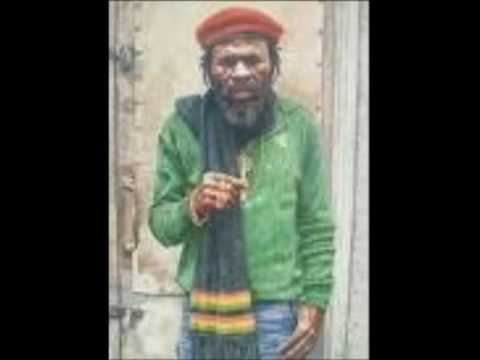InI Are The Chosen – Prince Far I
The seventies is the decade recalled as the golden age of roots reggae, primarily due to the fact that during these years many legendary artists came to prominence. Amongst those singers, DJs, vocal groups, musicians and producers perhaps the best-loved by the UK audience was the man known as Prince Far I – not so much a DJ in the classic style, but more a chanter of words.
Prince Far I was born Michael James Williams in Spanish Town, Jamaica in 1945. Growing up in the Waterhouse area of Kingston he attended dances MC’d by the early Djs who would become his inspiration. With confidence and experience he assumed the role of lead DJ with the Sir Mike the Musical Dragon Sound System. It has often been written that his early DJ name, King Cry Cry, was derived form either the pleading nature of his delivery or the righteous content of his lyrics. The actual explanation of the “nom de mic” is much more prosaic. The Prince had a strange habit of breaking out in uncontrollable sobbing on becoming angry!
Bunny Lee first recorded Far I in the early 70’s with a tune called “The Great Booga Wooga”. He went on to cut tunes for Coxsone, notably “Natty Farmyard” and a version of “Queen of the Minstrel”. In 1973 the Cordell’s “Simpleton” appeared on the Lion label, with the flip being a strange half-sung half-chanted version by the Prince entitled “Simpleton Skank”. In 1974 he voiced “Let Jah arise” for Enos McLeod at King Tubbys, and it is Enos who can be credited with renaming the DJ as Prince Far I. After some self-productions which appeared on Pete Weston’s Micron outlet, Prince Far I hit a period which included two of reggae’s greatest DJ albums. Firstly the “Psalms for I” collection, a straight chant of bible word, produced by Lloydie Slim and Micron on top of a set of ultra-tough rhythms from Striker Lee and Scratch. This album found Far I totally into his own style, distinct from all other DJs, primal yet righteous — the real “voice of thunder”. For some reason people remember Far I as a huge man, a gentle giant. On the contrary, he was quite slight — five foot nine inches. His physical build tends to be purely, but remarkably, conjured up from the sound of his awesome voice (and also perhaps his ability to enclose large amounts of bushweed within his fist!) The second landmark album was “Under Heavy Manners” for producer Joe Gibbs, engineered by Erroll Thompson. It contained the Prince’s first big Jamaican hit single, “Heavy Manners”, on the rhythm of Naggo Morris’ “Su Su Pon Rasta”. The 45 had caught the times with its earlier release during the high tension of the Jamaican state of emergency in the mid 70’s. The set also included an almighty version of “Deck of Cards” — a lyric to which the Prince would often return.
In 1976 Prince Far I set up his own label in Jamaica — Cry Tuff, with the sub-title Wisdom Man. Suffice to say at this stage that one Cry Tuff single, “No more war”, was a version of the Little Roy original “Tribal War”. Cry Tuff issued Far I’s productions in Jamaica. His UK business ran through the fledgling label Hit Run, created by Adrian Sherwood. This arrangement was almost one of master and pupil, as the Arabs/Roots Radics became Dub Syndicate with Sherwood learning the studio craft as both producer and engineer. The rhythm tracks were laid in Jamaica by Style Scott & Co, the mix and overdubs taken care of in London — creating a tradition which continues to this day. With albums also out on Virgin and Trojan Far I was a regular visitor to the UK in the late seventies becoming a firm favourite within the synergy that sparked between punk and reggae.
“Cry Tuff Dub Encounter Chapter III” by Prince Far I and the Arabs was originally released in the UK by that most avuncular of record shop proprietors Keith Stone of Daddy Kool. The whole affair was racked out in rapid studio time, conforming with the can-do ethics of the time — not to mention the lack of cash. The set features super-heavy deliveries by the Prince, pre-ambient doodlings and quirky noises from David Toop and Steve Beresford, and backing vocals from the Slit axis of Ari Up together with Viv Goldman and Elizabeth Archer. The album is important for those concerned with the history of reggae in the UK. It marked the handing on of the producer’s baton from Far I to Sherwood, soon to launch On U Sound at a time when many critics considered reggae to be a finished force.
Prince Far I, a man to grace any style with wisdom, a chanter to quake the walls of the city, a preacher to strike fear in the weakheart, humble in the garden and proud in the city, was shot dead in Jamaica, September 15, 1983, one year short of his 40th birthday.





